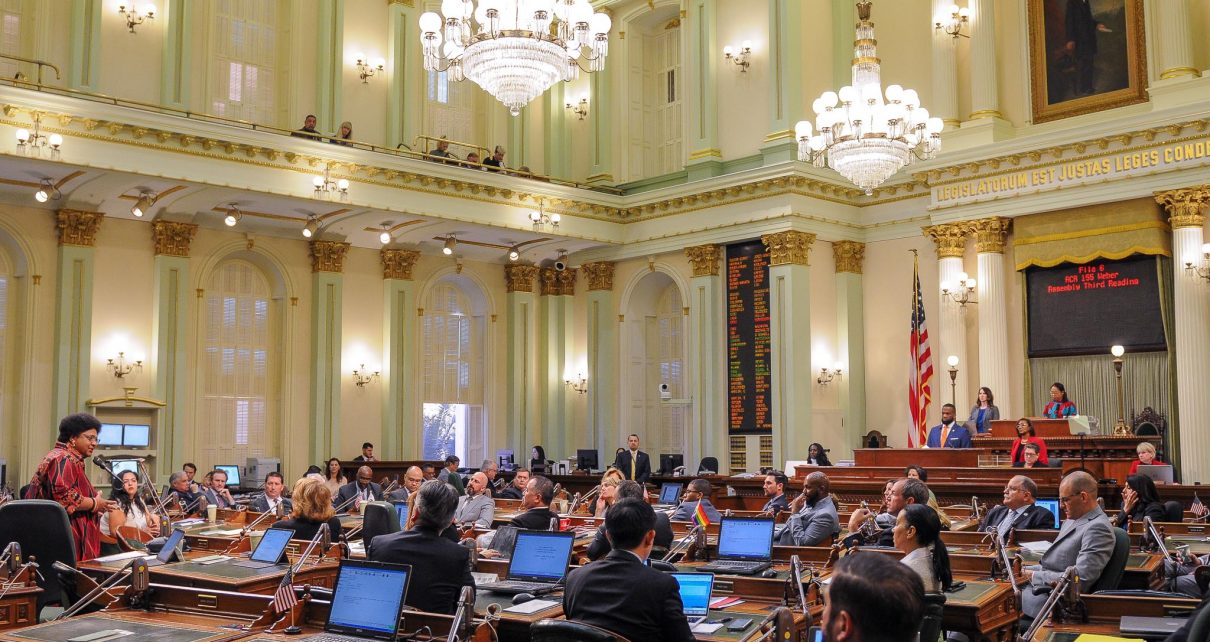
California State Assembly in Session. (Photo: Kevin Sanders for California Globe)
Office of Legislative Counsel Sometimes Needs to Clean-up the Codes
Outdated language and even misspelled words are contained in existing California Codes
By Chris Micheli, July 31, 2023 6:22 am
In recently-enacted legislation during the 2023 California Legislative Session, readers will see examples of how attorneys in the Office of Legislative Counsel (OLC) clean-up statutes due to outdated language, and even misspelled words contained in existing California Codes.
The following is an example from a bill that was enacted in July 2023. As you can read, the bill made a number of technical, nonsubstantive changes to existing state law. While not substantive changes, these statutory changes were required in order to update the language found in the California Public Resources Code.
Below are the changes made with a brief explanation thereafter:
SEC. 5.
Section 6896 of the Public Resources Code is amended to read:
6896.
Until the permittee applies for a lease as to that portion of the area described in the permit herein provided, he the permittee shall pay to the Statestate 20 per cent percent of the gross value of the minerals secured by him from the lands embraced within histhe permit and sold or otherwise disposed of or held by him for sale or other dispostion.disposition.
In the first change (he became the permittee), OLC removed the masculine word “he” and replaced it with a gender-neutral word, which also is a clearer reference back to the original permittee.
In the second change (State became state), OLC updated the Code section because we no longer capitalize this word, even though we are referring to a specific state – California.
In the third change (per-cent became percent), OLC updated the Code section because the word precent is no longer considered to require a hyphen. Instead, it is simply one word.
In the fourth change (by him is removed – twice), OLC removed the masculine word “him” and recognized that this phrase – by him – is actually unnecessary and superfluous and therefore can be removed.
In the fifth change (his became the), OLC removed the masculine word “his” and replaced it with a gender-neutral word.
In the sixth change (dispostion became disposition), OLC corrected the misspelled word that was in existing law.
- Service of Papers on an Attorney - January 12, 2026
- Formation of Limited Partnerships - January 11, 2026
- Intercountry Adoptions - January 11, 2026




